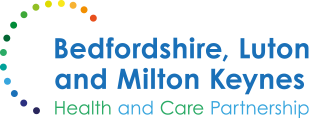We know that talking about how your are feeling can often be very difficult, however, there is help out there. You do not have to feel like this. We hear that women often worry that they will be judged or seen to be 'not coping' - this is a common misconception. Health professionals are aware of how common depression can be during the perinatal period, and are able to support you and your family. There will be a range of treatment options open to you -
Self-help:
There are lots of different types of self-help available to you for mild to moderate depression so you should be able to find an approach that suits you. One example can be seen by clicking here. This provides you with the option of exploring how you might be feeling through a workbook approach. There are also a number of online self-help information pages such as this one.
You may also find the Baby Buddy app useful. It contains masses of useful information about your physical and mental health in pregnancy and after the baby has arrived.
Reading well books are available from most libraries, they promote the benefits of reading for health and wellbeing.
You can also look at online Cognitive Behavioural Therapy (CBTS) programmes as well as self-help guides from the NHS here.
Talking therapy is a NICE recognised therapy delivered by a therapist either face to face, over the telephone or in groups. The therapy is available wherever you live via the NHS and is completely free. Women in the perinatal period (antenatal and up to 1 year post-birth) will be prioritised for talking therapy treatment. There are many different types of therapy available including Cognitive Behavioural Therapy (CBT), which has proved very effective for depression. You should receive your treatment within 6 weeks of the initial referral (NICE 2014).
Medication - You will need to seek the advice of your GP. For mild to moderate depression, talking therapy is the first choice of treatment and medication won't usually be considered until you have undertaken some therapy. The medications for treating depression are called antidepressants and there are lots of different ones to choose from. If you are pregnant or breastfeeding there are still antidepressants that you can take, but you need to discuss this with your GP. Please see further advice. It is not generally recommended that you take holistic medication without speaking to your GP in the first instance.
Here are some of the different ways you can access support locally:
- Your local Health Visitor in Hampshire here or Dorset and the Isle of Wight here.
- Your GP
- Click here to find your local talking therapies service
Useful services & resources:
- Hampshire Lanterns are a group of mums who have experienced mental health problems during pregnancy or after child birth. They aim to support each other via the internet and group meetings so that no mum should have to suffer alone.
- Recovery College in Hampshire & Dorset
- PANDAS Foundation
- Local Specialist Perinatal Mental Health Team (Hamphire tel: 01962 89 7780) (Dorset tel: 01202 584 329)
- Baby Buddy is the multi-award winning free app that guides you through pregnancy, birth, parenting and beyond. You can explore the we.b version of Baby Buddy or download the full version of the app for free on the App Store and Google Play. There is a lot of information including videos about your physical and mental health.
Further reading:
Resources:
Content adapted from MIND.



